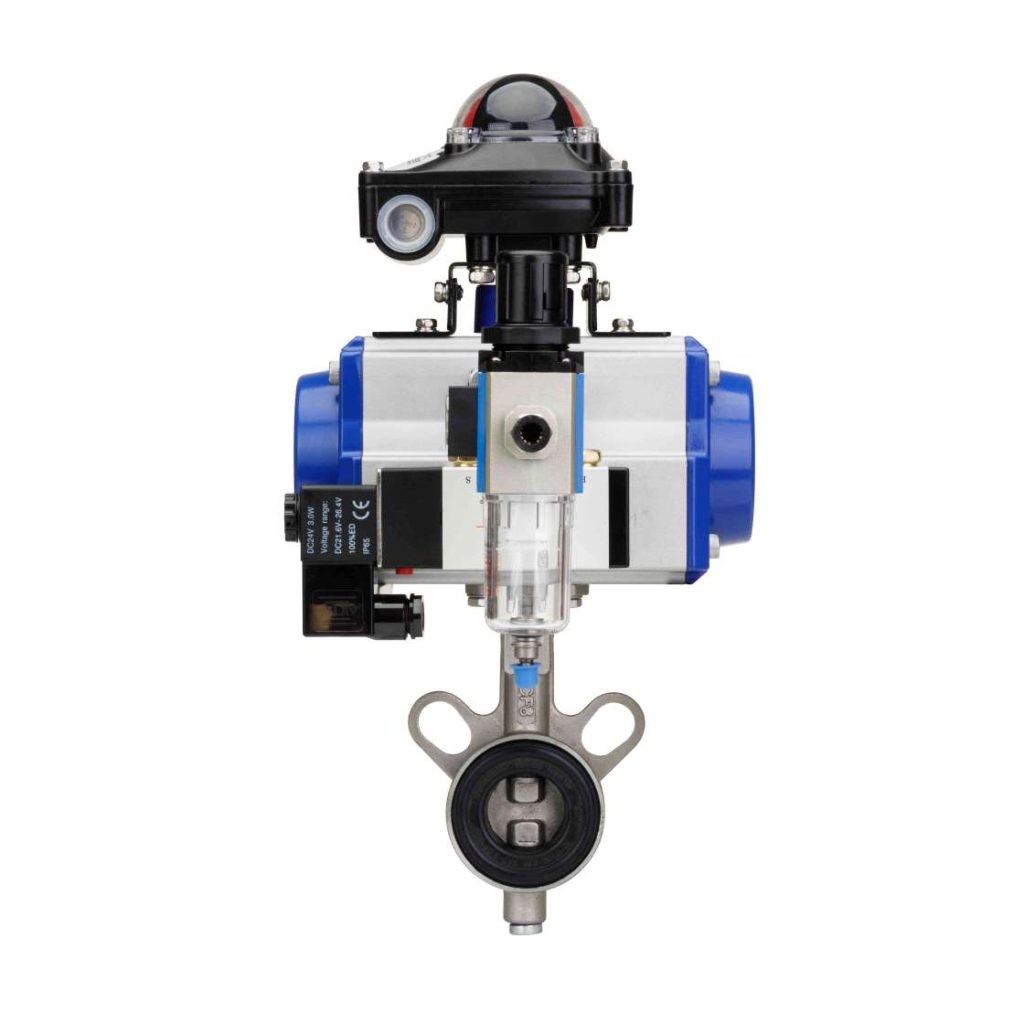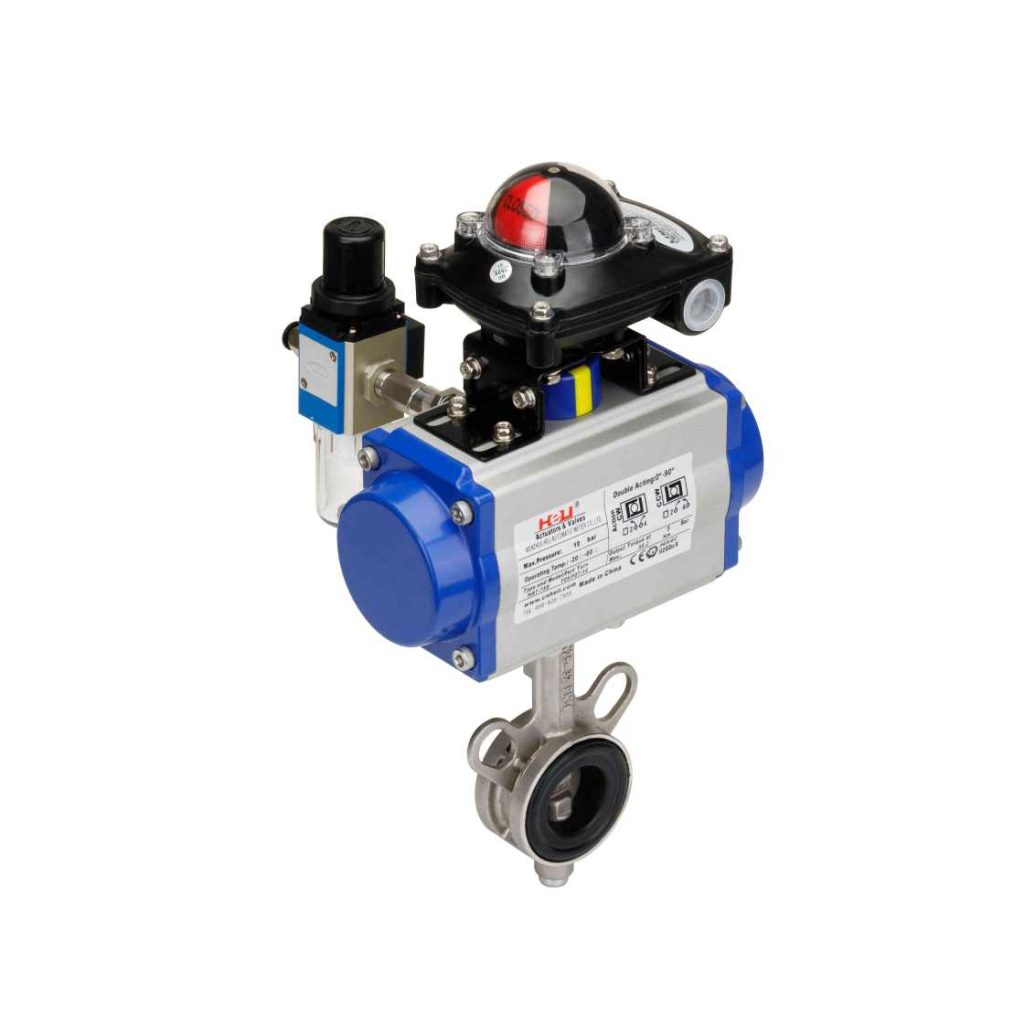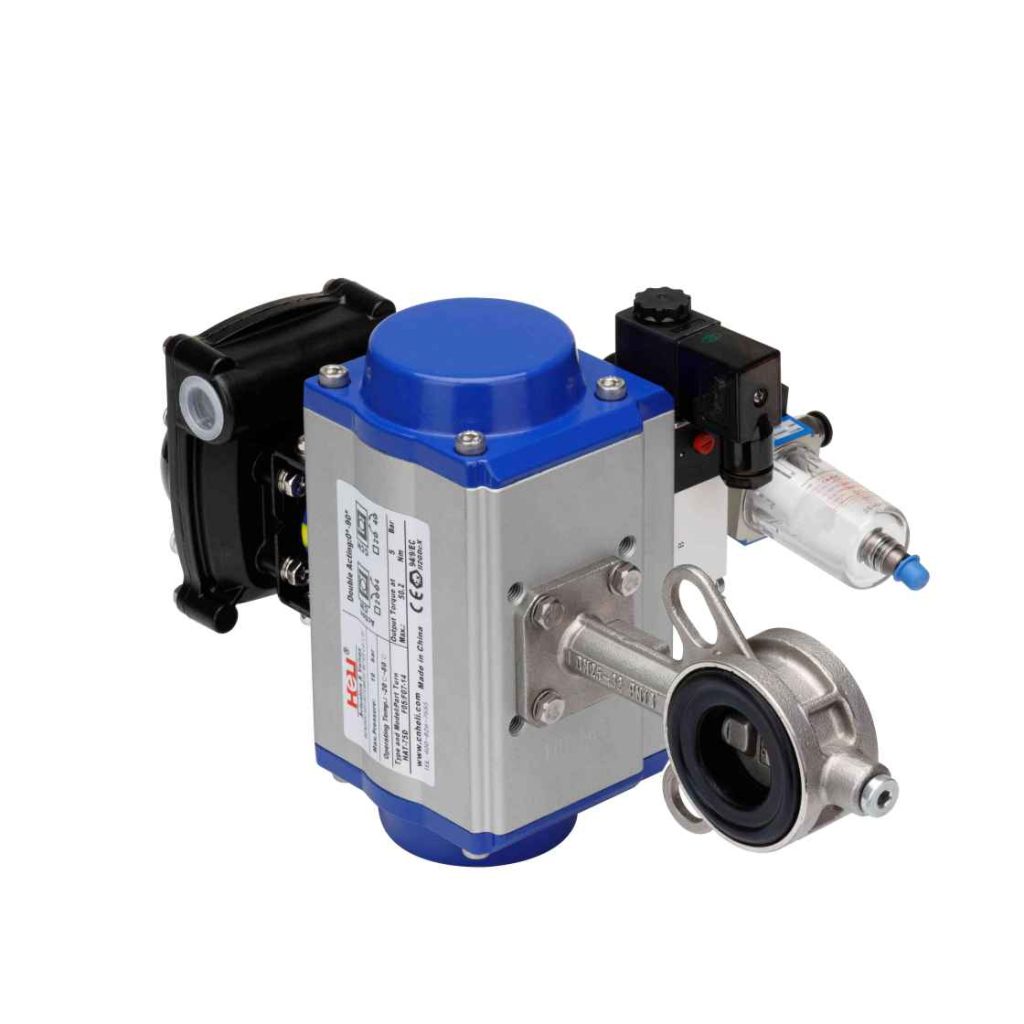Pneumatic butterfly valves are essential components widely used in various industries for regulating the flow of liquids and gases. These valves are known for their simple design, reliable performance, and cost-effectiveness, making them a popular choice in both industrial and commercial applications. This article explores the functionality, design, advantages, and key applications of pneumatic butterfly valves.

Understanding Pneumatic Butterfly Valves

A pneumatic butterfly valve is a type of quarter-turn valve that uses air pressure to operate the valve mechanism. It consists of a circular disc or “butterfly” mounted on a rotating shaft. When the valve is actuated, the disc rotates to either open or close the flow passage, controlling the fluid’s movement through a pipe or duct. Pneumatic actuators are used to control the valve’s position. These actuators are powered by compressed air, which moves the valve’s shaft and disc. The operation of the valve is quick and efficient, allowing for rapid flow control. This makes pneumatic butterfly valves ideal for applications requiring precise flow regulation or quick shutdowns.
